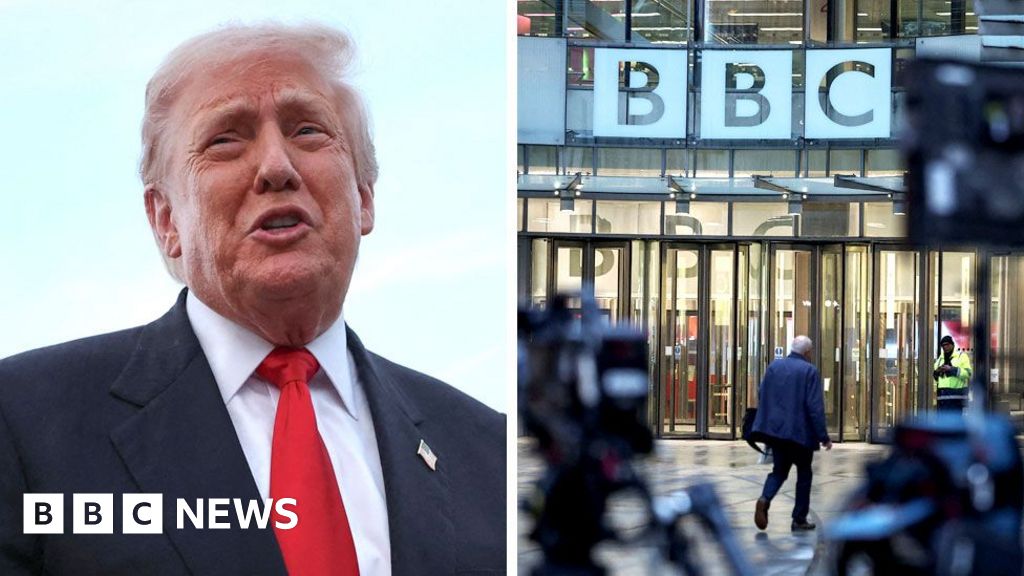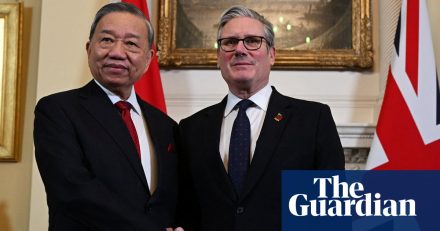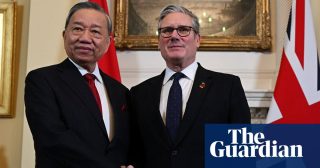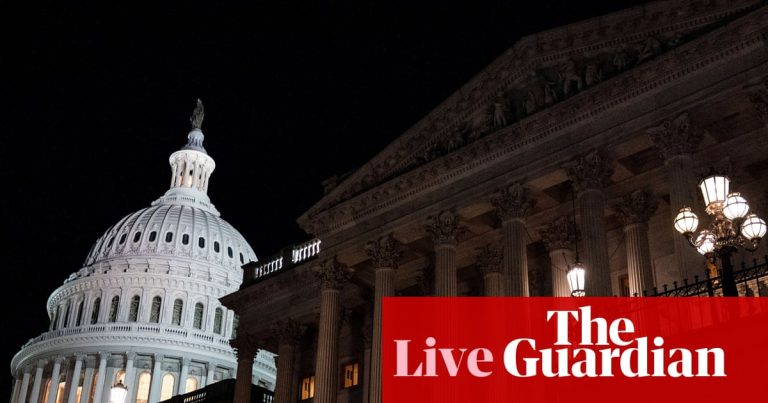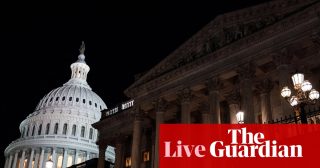By Maia Davies and Ruth Comerford
Donald Trump has threatened legal action against the BBC after criticism over how a speech he gave was edited and used in a Panorama documentary. His legal team has given the corporation until 14 November to make a “full and fair retraction” or face a $1bn (£760m) lawsuit.
A leaked internal BBC memo said the programme had misled viewers by splicing two parts of Trump’s 6 January 2021 speech together, making it appear he was explicitly urging people to attack the US Capitol after his election defeat. The two sections used in Panorama were originally more than 50 minutes apart. In the speech, Trump said: “We’re going to walk down to the Capitol, and we’re going to cheer on our brave senators and congressmen and women.” Panorama showed him saying: “We’re going to walk down to the Capitol… and I’ll be there with you. And we fight. We fight like hell,” which combined lines from separate moments.
The leak of a memo by Michael Prescott, a former independent external adviser to the broadcaster’s editorial standards committee, also accused the BBC of problems in its Gaza coverage, anti-Trump and anti-Israel bias, and one-sided reporting on transgender issues. The publication of that memo led to growing pressure and the resignations of director general Tim Davie and outgoing news CEO Deborah Turness.
Shah accepted an “error of judgement” over the Panorama edit and said the BBC would like to apologise for the impression the edit gave of a “direct call for action”. In a letter to the Culture, Media and Sport Committee, he said the corporation had received more than 500 complaints since the memo was published.
He said the Panorama edit had been discussed by the BBC’s Editorial Guidelines and Standards Committee in January and May as part of a wider review of US election coverage, and that Prescott and some committee members had voiced concerns then. Shah added he had been told by BBC News the purpose of editing the clip was to convey the speech’s message so Panorama’s audience “could better understand how it had been received by President Trump’s supporters and what was happening on the ground at that time.” He said the point was not pursued further because it had not attracted significant audience feedback and had been transmitted before the US election, but acknowledged: “With hindsight, it would have been better to take more formal action.”
Trump’s letter to the BBC, received on Sunday, demands an apology and “appropriate compensation,” accusing the broadcaster of making “false, defamatory, disparaging, misleading, and inflammatory statements” about him. His attorney, Alejandro Brito, also accused the BBC of defamation under Florida law.
Davie said the “current debate” around the corporation was not the only reason for his decision to step down, but it had “understandably contributed” to it. “Overall the BBC is delivering well, but there have been some mistakes made and as director general I have to take ultimate responsibility,” he added. Turness said the BBC was “not institutionally biased” and described journalists as “hardworking people who strive for impartiality.”
Political reactions were mixed. A spokesman for Sir Keir Starmer said the prime minister did not believe the BBC was “institutionally biased,” and No 10 denied the BBC was “corrupt,” a word Trump used about some of its journalists. Conservative leader Kemi Badenoch said there had long been “serious questions to answer” and called the documentary incident a “real problem.” Liberal Democrat leader Sir Ed Davey accused Trump of wanting to “destroy the BBC and take our money,” and said Reform UK leader Nigel Farage was “egging him on.” Farage said he had spoken to Trump, quoting him: “Is this how you treat your best ally?”
Shah’s letter noted that Prescott’s other concerns, including about BBC Arabic’s coverage of the Israel-Gaza war and about coverage of sex and gender identity, had been discussed by the editorial standards committee. He said a review of sex and gender identity coverage found “much of the coverage met the BBC’s standards of impartiality and accuracy,” while acknowledging “there are occasions when the BBC gets things wrong” and that action is taken when necessary, including disciplinary measures, updated guidelines and corrections.
The US president has a history of launching or threatening legal action against media organisations. In July, the BBC’s US partner CBS News and parent company Paramount settled for $16m (£13.5m) after legal action by Trump over alleged deceptive editing of an interview with then-vice-president and Democratic candidate Kamala Harris. The New York Times, CNN and the Des Moines Register have also faced legal challenges from Trump.
